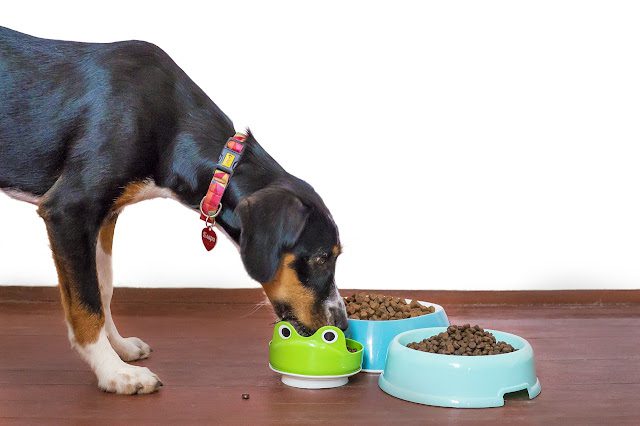The amount of food that you should feed your dog depends on several factors, including the dog’s age, size, breed, and activity level. It is important to consult with a veterinarian or a professional nutritionist to determine the appropriate amount of food for your dog, as each dog is unique and has different nutritional needs.
In general, a healthy adult dog should be fed a balanced diet that includes a mix of protein, fat, and carbohydrates. The proportions of these nutrients will depend on the specific needs of the dog and may vary depending on the type of food being fed (e.g., dry, wet, or homemade).
To determine how much food to feed your dog, you can follow these general guidelines:
Consult with a veterinarian or a professional nutritionist: They can help you determine the appropriate amount of food for your dog based on their age, size, breed, and activity level.
Follow the feeding guidelines on the food packaging: Most commercial pet food brands provide feeding guidelines on the packaging. These guidelines are based on the dog’s weight and are usually given in cups or ounces.
Adjust the amount of food based on the dog’s needs: If the dog is gaining or losing weight, or if their activity level changes, you may need to adjust the amount of food accordingly.
It is important to remember that these are just general guidelines and that the specific needs of your dog may vary. It is always a good idea to consult with a veterinarian or a professional nutritionist to determine the appropriate amount of food for your dog.
Here are some additional considerations to keep in mind when determining how much food to feed your dog:
Age: Puppies and senior dogs have different nutritional needs than adult dogs and may require different amounts of food. Puppies, for example, typically need more food to support their growth and development, while senior dogs may require less food due to their lower activity levels.
Size: Larger dogs generally require more food than smaller dogs, as they have higher energy needs. It is important to feed a dog the appropriate amount of food for their size to help them maintain a healthy weight.
Breed: Different breeds of dogs have different nutritional needs, and some breeds may require more or less food than others. For example, active breeds like sporting dogs and working dogs may require more food due to their higher energy needs, while smaller, more sedentary breeds may require less food.
Health conditions: If your dog has a medical condition, such as obesity or diabetes, they may require a special diet and a different amount of food. It is important to consult with a veterinarian to determine the appropriate amount of food for a dog with a medical condition.
By taking these factors into account, you can determine the appropriate amount of food to feed your dog and ensure that they receive the nutrients they need to maintain good health. It is always a good idea to consult with a veterinarian or a professional nutritionist to determine the specific needs of your dog and to ensure that they are receiving the proper nutrition.



